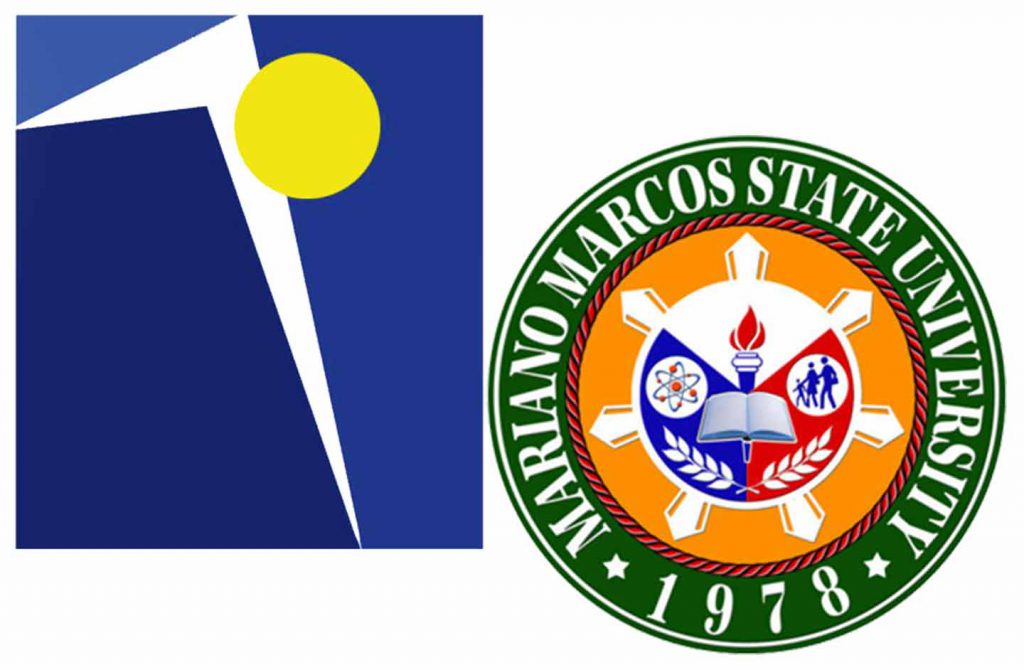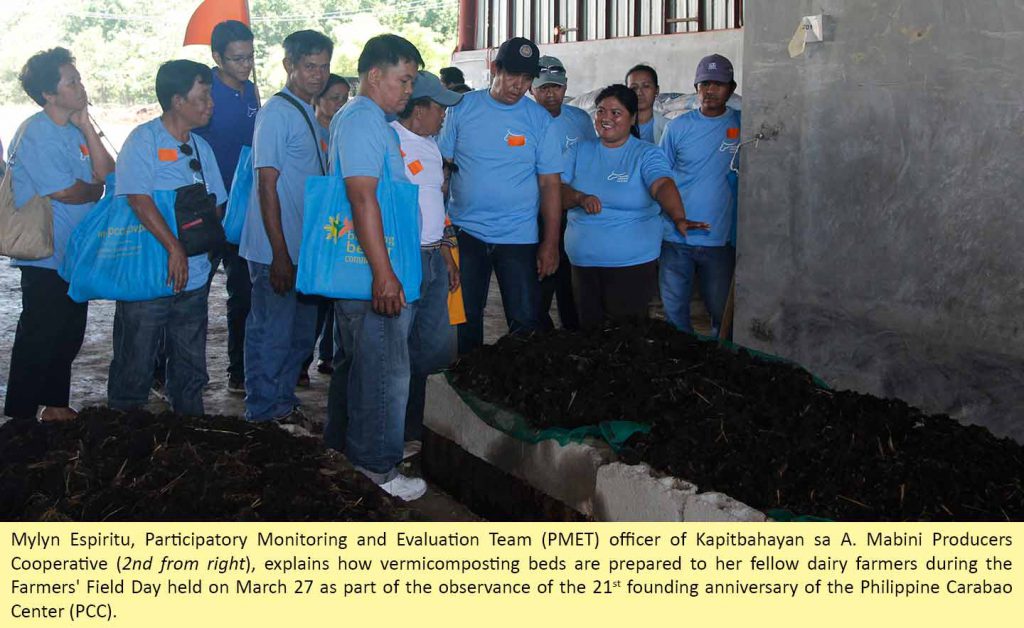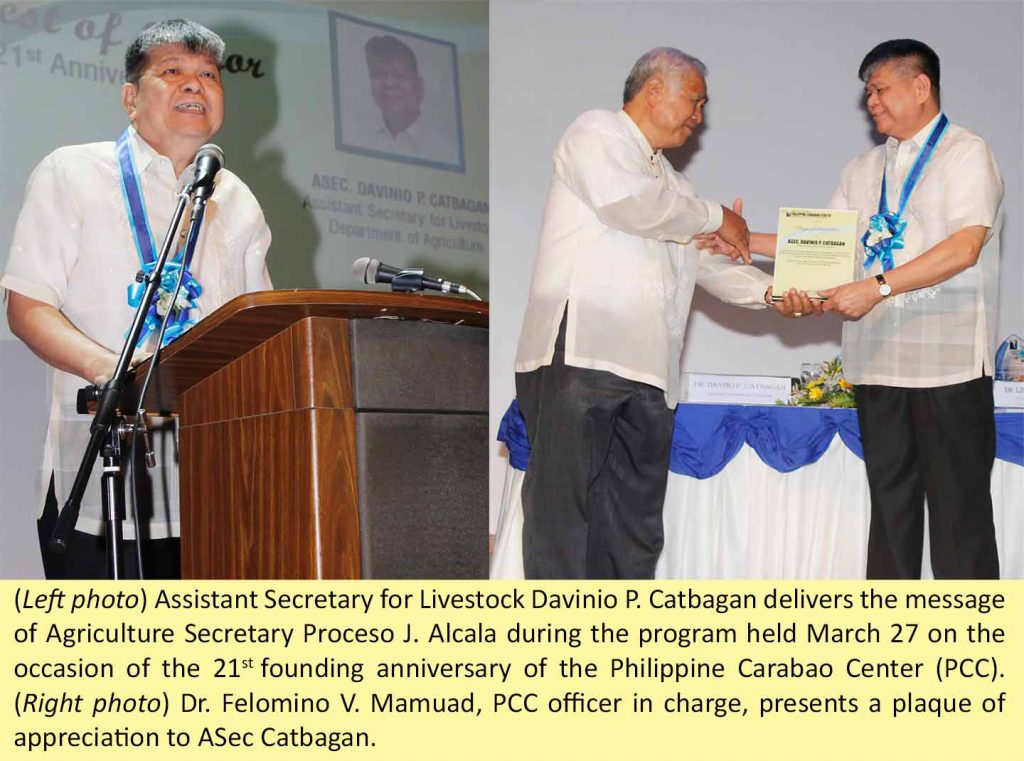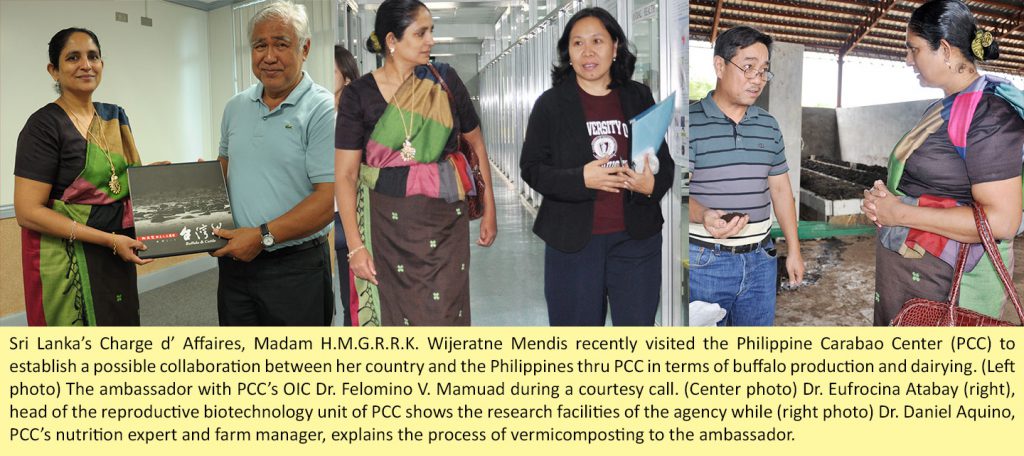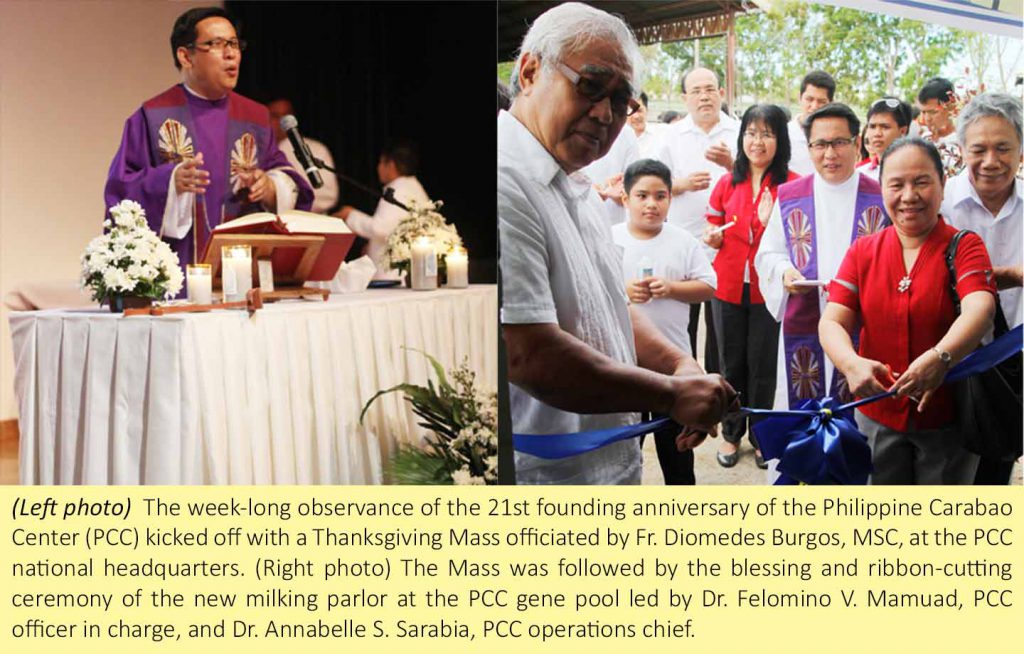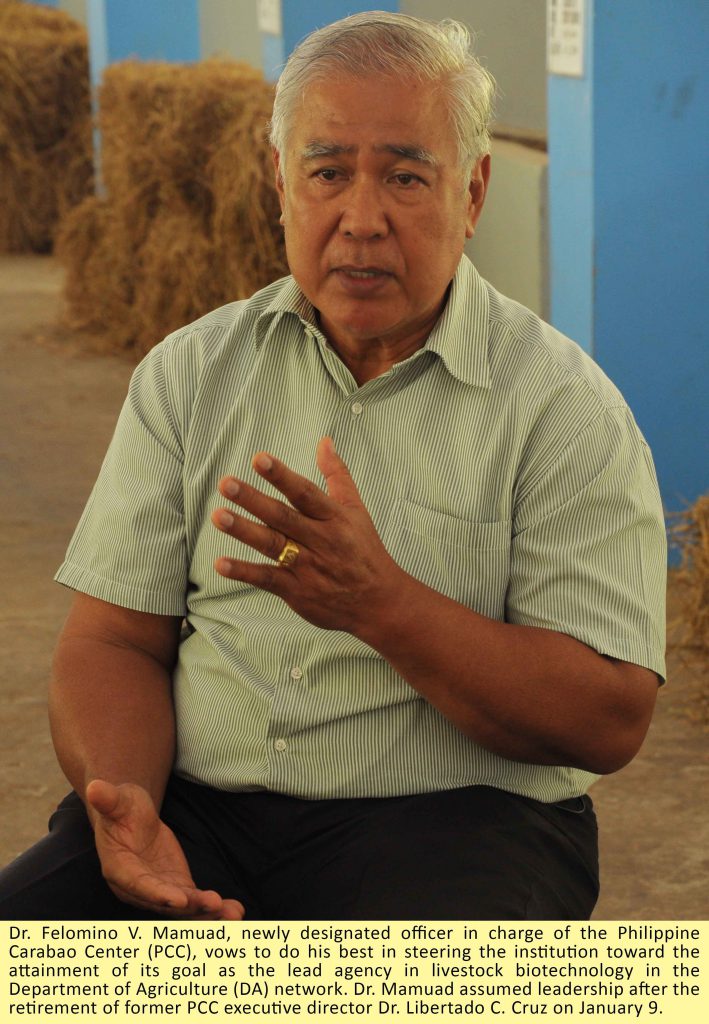The Philippine Carabao Center at Mariano Marcos State University (PCC-MMSU) remains an ISO 9001:2008 compliant entity after passing the re-certification audit conducted by TUV SUD PSB Philippines on January 27.
Erveene Zoleta and Brenda Estonanto, both TUV auditors, and Jose Arceo Bautista, an industry expert, conducted the re-certification audit, which focused on the scope of implementation of the Carabao Development Program, specifically in addressing concerns related to genetic improvement, carabao-based enterprise development, and research and development. Quality plans, procedures and processes were audited in accordance with the standard requirements of ISO 9001:2008.
The audit report indicated that the management system of the PCC-MMSU remains effective and compliant to the standard. It also stated that the observations/findings by the auditors did not have any adverse effect on the effectiveness of the center’s management system.
The report further recognized three positive aspects of the system, namely: 1) its being a PSAS Awardee for 2013 for Best Paper on “Reducing Calf Mortality through Improved Housing Management and Early Introduction of concentrate and Forage Grasses” by Dr. Catherine P. Dabalos; 2) for the two consecutive years of outstanding achievements by Francisco Alex Dani Pasion, a PCC-MMSU trained Village-based Artificial Insemination Technician (VBAIT), and 3) for its Customer Satisfaction Ratings for AI, Bull Loan, Frozen Semen Distribution and Client’s Training that were well above the target of 3.75.
As to the evaluation of other aspects, the auditors reported proof of continuous improvement in all management areas, and that the center consistently responds to relevant legal and regulatory requirements.
PCC-MMSU was first certified on March 2011 for its quality management system, holding the distinction of being the first ISO-certified PCC regional center. It successfully passed the surveillance audits on March 2012 and 2013 to complete one cycle of certification.
Headed by center director Grace Marjorie R. Recta, PCC-MMSU continues in its commitment to deliver quality products and services to its clienteles. To date, all nine permanent employees of the center have undergone training on internal quality audit.
The center’s QMS team is composed of Florencio T. Malicad Jr, quality management representative; Cesar C. Arevalo, lead auditor; and Mari Joan Nefulda, document control officer.

